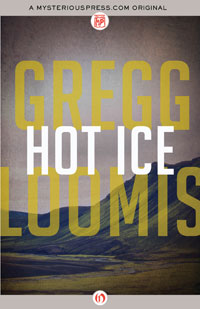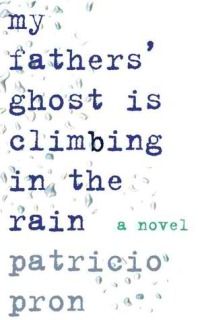Hot Ice by Gregg Loomis
 Saturday, May 25, 2013 at 12:43PM
Saturday, May 25, 2013 at 12:43PM 
Published by MysteriousPress.com/Open Road Media on May 21, 2013
Jason Peters, a professional assassin, has contempt for "bleeding hearts" who believe that Americans should obey laws that prohibit murder and torture. Peters works for Narcom, a private enterprise (i.e., mercenary group) under contract to government entities like the CIA. Peters is sent to a country in sub-Saharan Africa to shoot the country's president, thereby creating a diversion that will allow the president's guest, a high level al-Qaeda leader, to be kidnapped. That he is murdering a man who poses no threat to American interests is no more troubling to Peters "than squashing a cockroach." Peters' next assignment takes him to Iceland, where he recovers some objects that a Russian had hidden in a glacier before being attacked. The significance of the objects, once revealed, is just short of preposterous.
Gregg Loomis manages to work a bunch of boogeymen into the story, including Russians, Chinese, and Muslims, before revealing that the true villains are "ecoterrorists" working for a thinly disguised version of Greenpeace who sabotage oil rigs (because environmentalists love to cause oil spills), instigate mining accidents (for reasons that go unexplained), and kill people who contend that human actions are not a cause of global warming. I began to wonder whether Hot Ice is meant to be a comedy, but Loomis apparently expects the reader to believe that a respected and well-funded environmental organization exists only to murder those who disagree with its cause.
Peters is a crackpot who insists that the only peaceful Muslims in the world are those "who've run out of ammunition." To enjoy this novel, you either have to accept Peters' delusional thinking or ignore it. His unsupportable belief that there is "current political sympathy for terrorists" in the United States (seriously?) and that people who oppose illegal behavior are "closed minded" is the sort of thing I'm prepared to ignore for the sake of a good story, but that's something Hot Ice lacks. Peters is a one-note character and the note is a dull one. Whether motivated by blind patriotism or a desire for revenge (or, in Peters' case, both), characters with tunnel-vision just aren't very interesting -- and Peters' particular motivations are trite.
Characters in Hot Ice too often make simple-minded, preachy speeches about political and social issues that slow the novel's pace to a crawl. With the sole exception of Peters' pacifist girlfriend (another one-note character), the characters -- good guys and bad guys alike -- all seem to agree with each other on economic and social issues (particularly their abhorrence of any sort of health or safety regulation). I don't read thrillers to further my political reeducation. I want a thriller to thrill me, and the characters' endless pontification is a serious distraction from the story Loomis tries to tell. On one occasion, the author's narrative voice interrupts the story to lecture us about how disgusting homeless people are. On another, Loomis takes a cheap shot at a former president. None of these rants have anything to do with the story.
Apart from their inability to shut up, the characters are stereotypes. A self-impressed jerk, Peters is about as deep as a teaspoon full of water. He has the annoying habit of bullying everyone he meets, which I suppose is meant to establish his credentials as a tough guy. Like all macho action heroes, Peters is extraordinarily competent, as opposed to all the other people in the world who, by comparison, are so incompetent as to be hardly worth noticing -- unless they happen to be women who are undressing for him. Peters is, of course, irresistible to women, a curse that produces a moment of melodramatic guilt whenever he cheats on his girlfriend.
Loomis' writing style is ordinary but far from awful. The locations he writes about don't seem "lived in"; the descriptions could come from someone jotting down notes while riding on a tour bus. Some of the dialog borders on the inane, although I've read worse. The plot is thin and full of holes. Loomis seems to be more interested in political advocacy than in telling an intelligent story. I've read worse books, but there are so many better novels in this genre, I'm sorry I picked this one. Reading Gregg Loomis is a mistake I won't repeat.
NOT RECOMMENDED


